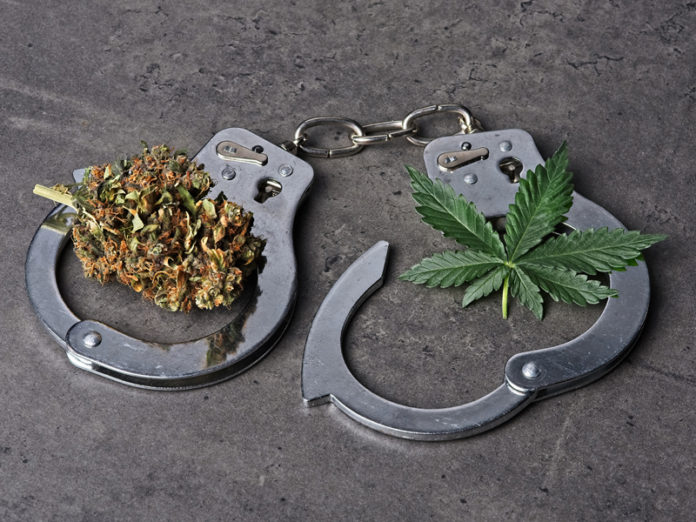Editor’s Note: The following is an op-ed submitted to BeaverCountian.com by Scott L. Bohn, Executive Director of the Pennsylvania Chiefs of Police Association. His thoughts come in reaction to Governor Tom Wolf’s proposal to legalize recreational marijuana in Pennsylvania as part of a COVID-19 recovery package. We are publishing Bohn’s opinions in full as written.
As Executive Director of The Pennsylvania Chiefs of Police Association and as a former member of the Pennsylvania Department of Health Medical Marijuana Advisory Board, I would like to express my concerns, and those of many of our membership, about the legalization of marijuana and the relative effects on public safety in or communities. I believe that marijuana legalization in Pennsylvania will pose significant challenges for law enforcement resulting from the unanticipated consequences it has on crime and public safety.
In our meeting with Lieutenant Governor Fetterman we supported decriminalization. There is an important distinction to be made here for the Commonwealths residents. Legalization of marijuana is the process of removing all legal prohibitions against it. Marijuana would then be available to the adult general population for purchase and use at will, similar to tobacco and alcohol. Decriminalization is the act of removing criminal sanctions against an act, article, or behavior.
There are insufficient data to determine the true impact of legalized marijuana on crime and safety. However, studies in Colorado show:
• High-potency THC from marijuana hash oil extractions, which are used in making legalized, laced edibles and beverages, has led to overdoses, potential psychotic breaks, and suicide attempts.
• Youth use and addiction rates have increased due to ease of accessibility, and there is great concern about the significant health impacts of chronic marijuana use on the youth.
• Banking systems are unavailable to the marijuana industry because of federal laws, creating a dangerous level of cash that can lead to crime.
• Difficulties in establishing what is a legal marijuana operation have created problems in conducting investigations, determining probable cause and search and seizure procedures.
• Marijuana illegal trading through the black and other markets has not decreased. Diversion across state boundaries has created issues for states that do not have legalized marijuana laws.
• Detecting driving under the influence of marijuana is a significant challenge for law enforcement. Currently, there is no roadside test for marijuana intoxication.
• Many States have had difficulties caused by conflicting state legislation and local ordinances, policies, and procedures. The situation is even more complex because marijuana remains a Schedule I controlled substance under federal law.
One of the most salient concerns we have relates to the consequences of drug-impaired driving. We have all witnessed our share of crashes and traffic congestion, as well as vehicular, pedestrian and cyclist fatalities. Law enforcement officials are uniquely qualified to discuss the issues and concerns related to impaired driving. Our efforts to curb drunk driving have met with a great deal of success over the last decade, but drug impaired driving is not the same as alcohol impaired driving and our understanding of the impairments due to drug impairment is limited.
Alcohol is unique among impairing drugs in that there is a documented correlation between blood levels and levels of impairment. This does not exist for other drugs and it has been shown to be non-existent for THC in marijuana. It is not possible to currently identify a valid impairment standard for marijuana or any other drug equivalent to the .08 percent BAC limit for alcohol. Exacerbating the problem is the matter of how to best create, implement and enforce the laws prohibiting impaired driving. In populous areas of our Commonwealth, this is particularly concerning, where the risk of catastrophic consequences related to a drug impaired driving incident is exponentially more probable.
The percentages of traffic deaths related to the use of recreational marijuana doubled in Washington State in the year retail marijuana sales were allowed. In Colorado, marijuana is now involved in more than one of every five deaths on the road. These statistics highlight why it is necessary to wait until we have a better understanding of the impacts and management of marijuana intoxication.
Given the statistics that are available today, it is clear and indisputable that the use of recreational marijuana negatively impacts the motoring, pedestrian and special needs community and that innocent people in states where recreational use of marijuana has been legalized are at a greater risk of harm, injury and death due to the increased numbers of drug impaired drivers.
Law enforcement executives in the Commonwealth need answers that are supported by valid data and scientific research. Current information validates our concerns and strengthens our collective resolve that the Commonwealth of Pennsylvania should not legalize the use of recreational marijuana.
Scott L. Bohn
Executive Director
Pennsylvania Chiefs of Police Association
See Also:
– It’s 420! Here’s A Stoner Holiday Story About An Iconic Picture From Beaver County’s Past
– Beaver County Patients Say Medical Marijuana Is Making A Difference In Their Lives

